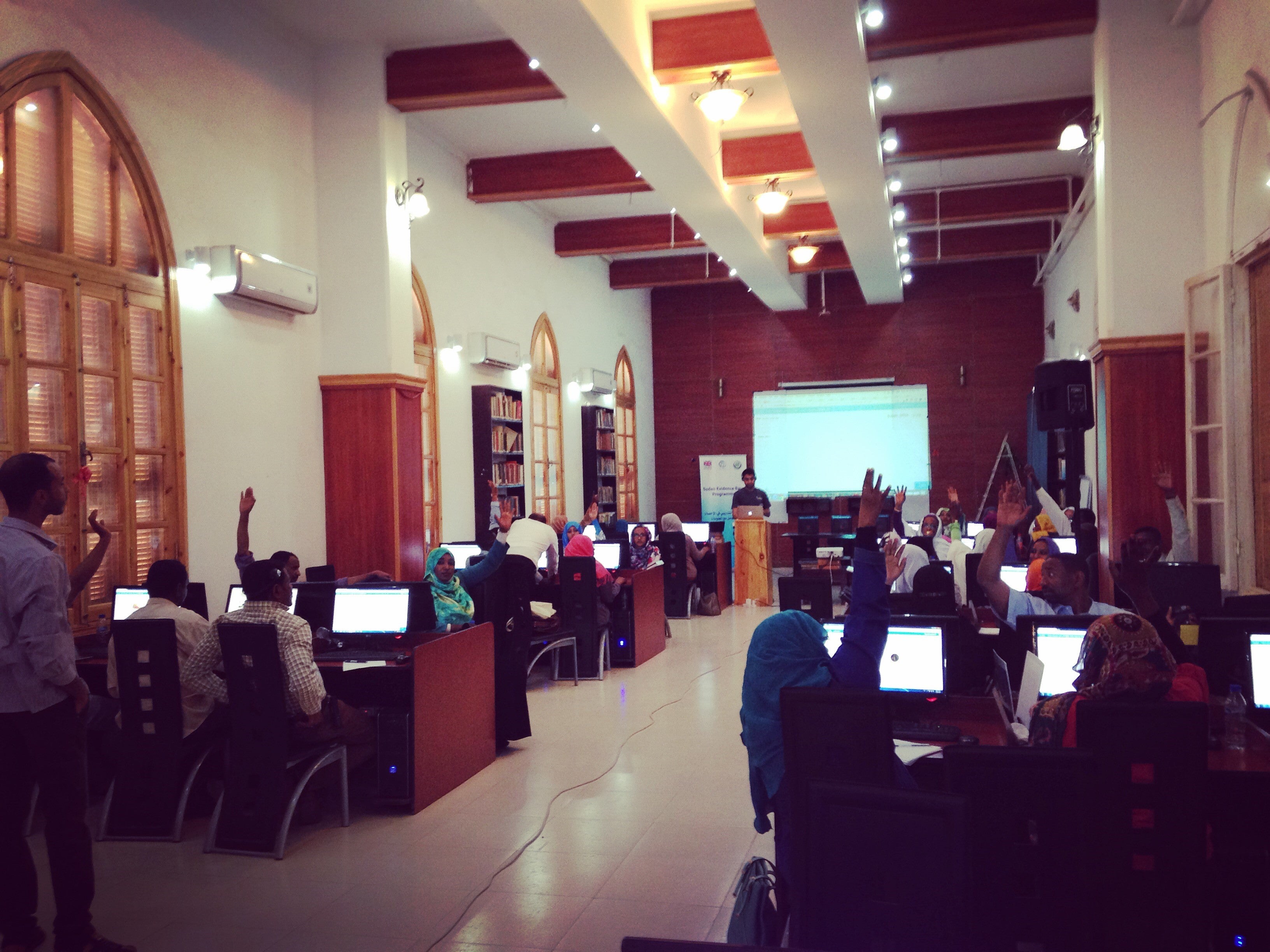
What do you do when facing a tough decision, like buying a home or selecting the right location for your new business? What about decisions that affect entire communities, or countries? How are those decisions made?
If you’re like most people, you rely on facts and advice from experts. You might look for data in studies, reports, or seek the advice of people you trust. You may also conduct a bit of critical analysis of the data you collect and the advice you receive. Ideally, policy-makers responsible for making decisions which impact our communities and our lives are collecting reliable data and conducting critical analysis, as well.
Evidence-based decisions in Sudan
The Sudan Evidence-Base Program (EBP), a partnership among the Ministry of Finance and Economic Planning, the United Kingdom’s Department for International Development (DFID), and the World Bank, aims to improve the use of data for decision-making in Sudan through targeted and sustainable capacity building.
In order to make the program relevant to participants and instantly useful, the curricula and exercises focus on Sudan-specific data, gathered from various ministries and international organizations.
Recognizing that good policies are developed when communities, as well as government, can evaluate data and facts , the EBP brings together policy influencers and implementers from government and non-government organizations. The cohorts kicked off in January and will gather for training a week out of every month through October 2016.
For statisticians and data publishers from various ministries, the EBP has developed a detailed statistics handbook. In addition, for public sector professionals who may use these statistics for decision making, the program offers an applied statistics curriculum.
For non-statisticians and data consumers from media, NGOs, CSOs and the private sector, the EBP has developed an introductory data literacy course (e-learning), which is bolstered by an intermediate-level ‘data storytelling’ curriculum.
Data literacy for you
The EBP aims to support the global community in policy-making, decision-making, and monitoring based on evidence and data. While the EBP curricula focus on Sudanese examples and data, the statistics and data analysis concepts are universal.
Help yourself to the data literacy course (create an account to access the free e-learning).
You can also access content from the other curricula, as well all of the collected for use throughout the program on www.sudandata.org.
Watch this space, as we’ll share lessons learned as the program is rolled out, starting with our Brown Bag Lunch “Open Data in Closed Countries: The Sudan Evidence Base Program”. Join us Thursday, March 17, 11:30 AM at The World Bank in Washington, D.C. Enroll here (in person or via Webex).
Key data literacy contributors Eva Constantaras (Advisor, Internews) and Harshil Parikh (Co-Founder, Tuva) will join Program Lead, Craig Hammer (World Bank) and Co-Lead Sandra Moscoso (World Bank) in sharing the nuts and bolts of building a sustained capacity-building program.
Join us!


Join the Conversation